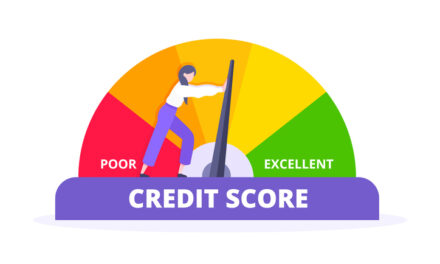Freelancing is a fantastic way to be your own boss and enjoy flexibility in your work, and with a difficult job market, it’s becoming a more popular career option. There are many benefits to working freelance, and there are some challenges, too. One of those challenges is managing your finances. Without an employer providing you with benefits and removing taxes from your paycheck, you are going to have to give yourself those things. Additionally, your monthly pay may not be steady the way it is in a traditional job setting. You can absolutely have financial success as a freelancer, but it takes planning. Financial planning for freelancers doesn’t have to be complicated–you just need to know what to do.
Tips for Successful Financial Planning for Freelancers
1. Create a Budget That Fits Your Lifestyle and Business Needs
When you’re freelancing, your income can vary from month to month. That’s why having a budget is key. Start by keeping track of your earnings and expenses. Make a list of your regular bills, like rent and utilities, plus occasional business costs, such as project materials or software. Apps and tools can help you keep everything organized. A good budget helps you stay on top of your finances and avoid surprises.
2. Build a Rainy Day Fund
It’s smart to have a financial cushion for those times when work is a bit slow. Aim to save three to six months’ worth of living expenses. This emergency fund will give you peace of mind and help you cover expenses if you hit a rough patch. Regularly add to this fund whenever you can, even if you’re having a great month.
3. Set Aside Money for Taxes
As a freelancer, you’re responsible for paying your taxes, including self-employment taxes that cover Social Security and Medicare. Since taxes aren’t deducted from your payments, set aside about 25-30% of each payment you receive. It’s a good idea to make quarterly tax payments so you’re not hit with a big bill at tax time.
4. Keep an Eye on Your Cash Flow
Managing cash flow is essential when your income fluctuates. Keep track of when clients are expected to pay and plan your spending around that. Use invoicing tools to keep your billing organized and follow up on late payments. Knowing your cash flow helps you handle slower months without stress.
5. Save for Retirement
Freelancers don’t have company-sponsored retirement plans, so it’s up to you to plan for the future. Consider setting up a retirement account like a Solo 401(k) or a SEP IRA. These accounts offer tax benefits and help you save more efficiently. Even small, regular contributions can add up over time, so start saving for retirement as soon as you can.
6. Track Your Business Expenses
One of the perks of freelancing is that you can deduct business expenses from your taxes. Keep detailed records of things like office supplies, software, and travel costs. Using accounting software or working with a bookkeeper can simplify this process. Tracking these expenses helps you save money and reduce your taxable income.
7. Set Financial Goals
Setting goals gives you something to work towards and keeps you motivated. Whether you’re saving for a big purchase, planning to invest in new equipment, or expanding your business, having clear goals is important. Break them down into manageable steps and check your progress regularly to stay on track.
8. Be Ready to Adapt
Freelancing requires flexibility, and your financial plan should be no different. Regularly review and adjust your plan based on changes in your income, expenses, and goals. Staying informed about tax laws and financial strategies ensures you’re always on top of your game.
Our Professionals Can Help
Financial planning can be tricky, so don’t hesitate to seek help from professionals. The financial advisors at DeSantis, Kiefer, Shall, & Sarcone can offer valuable guidance on managing taxes, planning for retirement, and handling investments. Our expertise can help you make smart decisions so you can stay within budget and achieve your goals. With a solid plan in place, you can enjoy the freedom of freelancing while keeping your finances in check.




![The Qualified Business Income Deduction Explained [2020]](https://dkscpa.com/wp-content/uploads/2020/02/taxcut-440x264.jpg)

